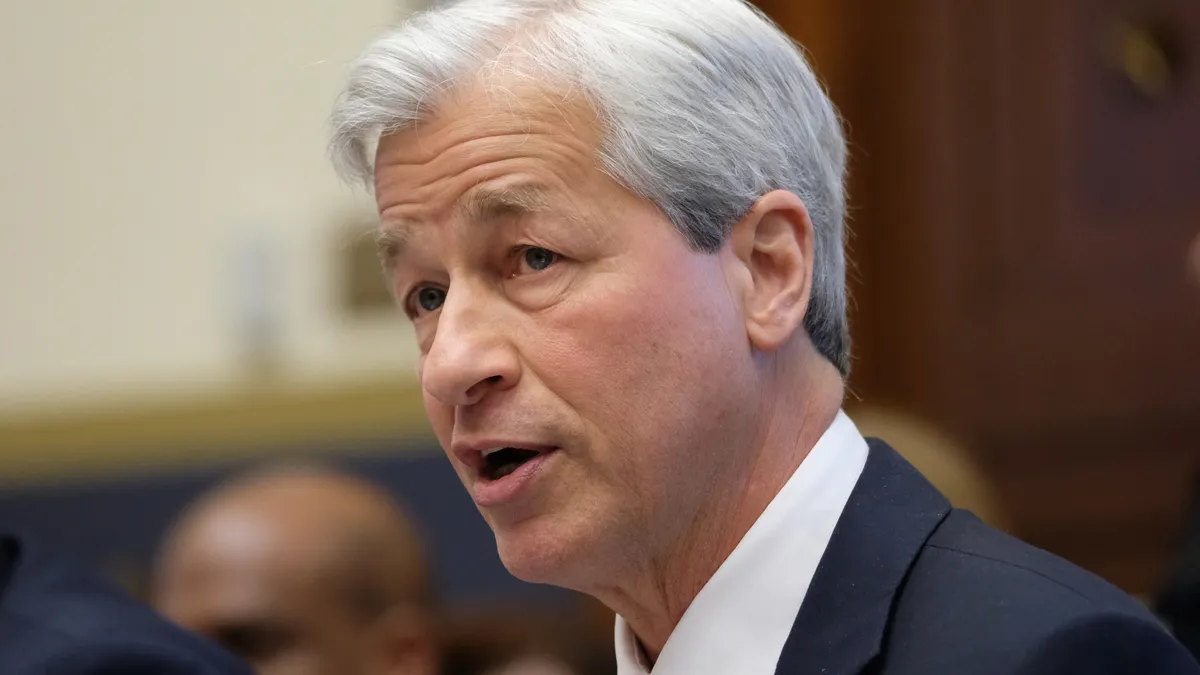JPMorgan Chase is forecasting $84 billion in net interest income this year, a $3 billion increase from its forecast prior to its First Republic Bank acquisition, the bank said at an investor day presentation Monday.
“Sources of uncertainty” remain, however, including magnitude and timing as well as competitive dynamics and consumer behavior, a slide presentation from the company said.
JPMorgan acquired First Republic in early May following several weeks of market volatility that included the second-, third-, and fourth-largest bank failures in U.S. history. First Republic is the second-largest U.S. bank failure ever, following the 2008 collapse of Washington Mutual.
Following the acquisition, JPMorgan CEO Jamie Dimon told analysts that bank consolidation is inevitable.
“[B]anks will consolidate. You’re going to have all of that taking place,” he said. There are thousands of banks and credit unions in the U.S.
In a separate conversation with Bloomberg, he also said the U.S. “need[s] to finish the bank crisis” and regulators should “not be surprised constantly.”
JPMorgan and several other large banks experienced an increase in deposits in the first quarter as customers at beleaguered banks sought certainty and stability.
About 600,000 new checking accounts were opened at the bank this year through April, the bank said Monday, and in the last year, the bank increased its retail-deposit market share by about 60 basis points, Chief Information Officer Lori Beer said.
Last year, the bank netted 1.6 million new checking accounts. Since 2019, the bank has outperformed its peers in deposit growth, according to the presentation, with an 18.3% compound annual growth rate. Industry-wide deposit growth is 11.3%, it said.
The bank’s outlook for its 2023 expenses remains $81 billion, with the exception of approximately $3.5 billion in costs related to the First Republic deal.
Doug Petno, JPMorgan’s commercial banking chief, said Monday that the acquisition benefited JPMorgan’s commercial banking business as “an opportunity to deepen our presence in several high-growth markets, and it lets us now deliver our entire firm across their tremendous client franchise.”
“In addition, we expect to benefit from their exceptional client service model and track record of strong credit performance,” he added.
Following Morgan Stanley CEO James Gorman’s announcement last week about plans to step down from the role within 12 months, analysts asked whether Dimon had a timeline for his own retirement.
“I’m not going to play golf,” Dimon said, according to Barron’s.
“I won’t do this forever,” Dimon added. “But I have the same intensity. If I didn’t, I should step away. I think CEOs should retire when they don’t have that intensity.”
JPMorgan’s proxy statement identified its president and chief operating officer, Daniel Pinto, as “a key executive who is immediately ready to step into the role of sole CEO, should the need arise in the near-term,” Reuters noted Monday.
JPMorgan has more than 13% of deposits and 21% of all credit card spending in the U.S., both outnumbering such stats at any of its competitors, according to Wall Street Journal.













